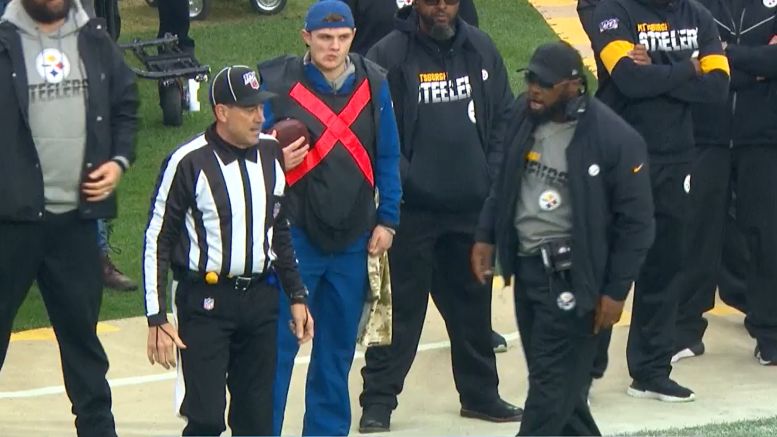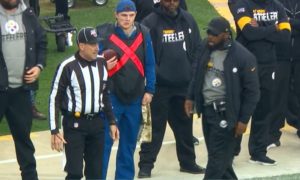A lot of attention is being given to the proposal to give trailing teams the option of running a fourth-down play from their own 25-yard line rather than attempting an onside kick toward the end of the game. Personally, I really don’t see this potential change as a big deal, at all. I don’t think it’s going to make much of a difference, but it would certainly be more exciting than watching almost all onside kicks fail. At least it’s a play being run.
The potential changes I’m more interested in concern the way the game is officiated, with the addition of a ‘sky judge’ type of role being considered. There are two rules in that vein that will be weighed at a later point this offseason:
By Baltimore and Los Angeles Chargers; to amend Rule 19, Section 2, to add a “booth umpire” as an eighth game official to the officiating crew.
By Baltimore and Los Angeles Chargers; to amend Rule 19, Section 2, to add a Senior Technology Advisor to the Referee to assist the officiating crew.
It’s worth noting that the Competition Committee never actually passes proposals that had been submitted by teams, but occasionally they could later lead to a proposal that the Competition Committee introduces and then adopts.
NFL Football Operations Tweeted yesterday that “the Competition Committee supports
@NFLOfficiating’s further analysis of the idea to create an officiating advisor, positioned somewhere other than the playing field with access to video, and in full communication to on-field officials”.
The account also added that they may experiment with this type of role in the preseason. So what it sounds like is that this is not going to pass, but they could adopt a measure to test some aspect of it in the preseason, that would allow them to further evaluate it for the future.
Both the AAF and the XFL have made use of a ‘sky judge’ of sorts, an official who has direct access to video replay feeds and can live-assist the on-field officials in the hopes of quickly correcting any obvious and egregious mistakes.
This would be far more comprehensive than the review system, which not only requires that the issue in question be eligible for a review, but also faces a far higher standard to be overturned than if the officiating team is simply correcting itself before a ruling has been finalized.




